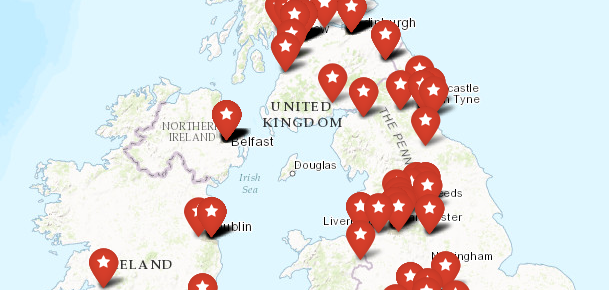
My research recovers and amplifies African American testimony from the British Isles during the nineteenth century, with a particular focus on those who had been enslaved in the southern states of the U.S. My book, Advocates of Freedom: African American Transatlantic Abolitionism in the British Isles (Cambridge University Press, 2020) tells the story of extraordinary individuals who journeyed across the Atlantic to lecture in England, Ireland, Scotland and even parts of rural Wales to educate the British public on slavery. I argue that by sharing their oratorical, visual, and literary testimony to transatlantic audiences, African American activists galvanised the antislavery movement and highlighted not only their death-defying escapes from bondage but also their desire to speak out against slavery and white supremacy on foreign soil. Using a framework I term adaptive resistance, I uncover the reasons why some activists were more successful than others, why they visited certain locations, how they adapted to the political and social climate, and what impact their activism had on British society.
Many African Americans sought temporary reprieve from American soil, others permanent; some raised money to free themselves or enslaved family members, and others sought work with varying degrees of success. Between the 1830s and early 1900s, Black women and men lectured in large cities and tiny fishing villages, wrote and published narratives, stayed with influential reformers, and appealed to different classes, races, and genders, with no discrimination against profession, religion, or age. Whatever their reasons for visiting, Black abolitionists exhibited whips and chains, sometimes together with their scars; read runaway slave advertisements from southern newspapers; created visual panoramas and used fiery rhetoric to tell their stories.
During this period, millions of British and Irish people witnessed formerly enslaved people lecture. They vociferously read about their lives through slave narratives or pamphlets, watched antislavery panoramas unfold, purchased daguerreotypes and raised money to free enslaved individuals and their families. Activists inspired poetry, songs, woodcuts, pamphlets, children’s literature, wax models, religious remonstrances, along with hundreds of editorials and letters to the press. It is therefore unsurprising that British newspaper editors littered their reportage with accounts of formerly enslaved individuals as well as their speeches, adverts for their narratives, and their letters to editors. From the John O’Groat Journal to the Royal Cornwall Gazette, Victorian Britons followed the movements of Black Americans from the 1830s until decades after the American Civil War, often cramming into tiny churches or town halls to curb an insatiable appetite for details about American slavery. The politicized and radical journeys undertaken by African Americans to the British Isles are crucial to understanding their testimony and future careers, but also the antislavery movement and the Black Atlantic as a whole.
My work is also timely: as the Black Lives Matter protests continue to take place around the world, it’s important to recognize that the activists I discuss were declaring that their Black lives mattered nearly two centuries ago. It’s well documented that the movement has strong historical roots, but my chapter on Ida B. Wells’ lynching campaign in Britain in 1893 and 1894 is particularly prescient when we consider the modern lynchings of George Floyd and Breonna Taylor. The book highlights not only the trajectory between activists in the c19th and today, but also how far we still have to go to accomplish their anti-racist missions.
Latest Comments
Have your say!